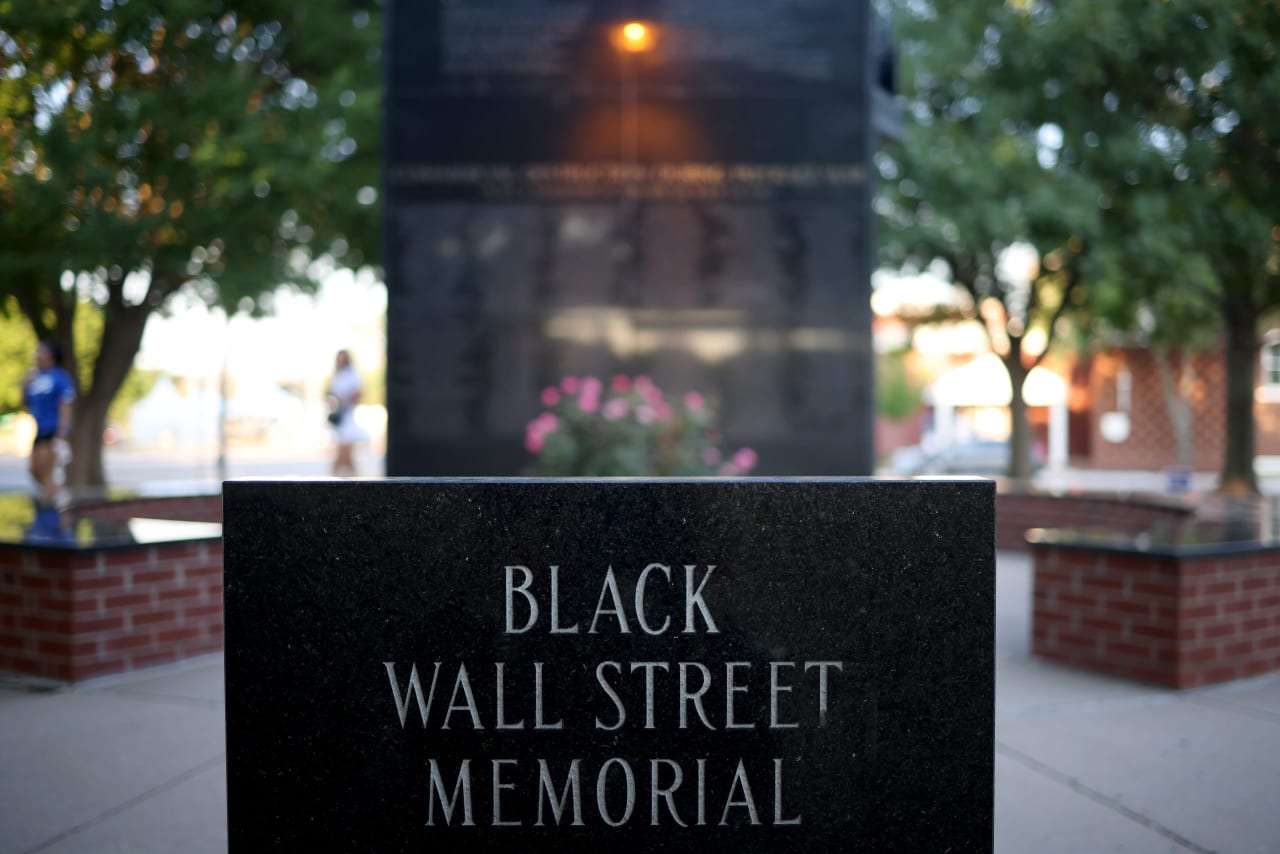We bring news that matters to your inbox, to help you stay informed and entertained.
Terms of Use and Privacy Policy Agreement
WELCOME TO THE FAMILY! Please check your email for confirmation from us.
“The survivors are getting older and there’s now a sense of urgency to for them to finally get justice,” said Christina Becker, associate director of racial justice at equity at Human Rights Watch
The two remaining known Tulsa Race Massacre survivors may lean on members of the U.S. Congress if the Oklahoma Supreme Court does not reverse a lower court’s decision to grant them a trial on a reparations lawsuit.
Attorney Randall Adams, partner at Schulte Roth and Zabel LLP and a lead attorney on the case, told theGrio, “If the Oklahoma Supreme Court does not reverse the trial court’s decision … that is it for our lawsuit.”
“We cannot appeal to the U.S. Supreme Court because this is not a question of federal law. It is a question of Oklahoma law,” he added.
However, Adams told theGrio, “Congress and President Biden can absolutely do something for the victims of the massacre in Tulsa.”
“They could pass legislation. They could take some action,” he added.
The Human Rights Watch (HRW) organization partnered with the legal team to support the lawsuit seeking justice for the Tulsa Race Massacre survivors, Viola Ford Fletcher and Lessie Benningfield Randle. Both are 109 years old.
Last month, Fletcher’s younger brother and fellow survivor, Hughes ‘Uncle Redd’ Van Ellis, passed away at the age of 102.
Christina Becker, associate director of racial justice and equity at HRW, told theGrio that although the federal government could pass reparations legislation and the state government could grant the survivors reparations, the government’s failure “to address justice over 100 years compounds the harm to the survivors and their descendants.”
“It also allows the government to continue to sweep this massacre and their accountability for it under the rug,” she said.
“The survivors are getting older and there’s now a sense of urgency for them to finally get justice,” she added. “This could be absolutely their last shot of doing so.”
Earlier this week, lawyers with SolomonSimmonsLaw and Schulte Roth & Zabel, LLP, who are representing the last two surviving victims of the 1921 massacre argued that justices should reverse the lower court’s decision while the survivors are still alive.
In July, a lower court judge dismissed the Tulsa Race Massacre reparations lawsuit for not clearly stating a remedy for the alleged harm and in Aug. Oklahoma’s Supreme Court decided to grant certiorari. The high court will either rule in favor of a jury trial or it will affirm the lower court’s decision and dismiss the lawsuit altogether.
In a press release, Damario Solomon Simmons, a civil rights attorney leading the case said, “The Oklahoma Supreme Court holds the power to etch this chapter in history as the one where we chose justice over complacency.”
Adams told theGrio, “The Tulsa Race Massacre of 1921 was the worst act of terrorism in American history.”
“No court in Oklahoma or anywhere else in the country has ever heard a case relating to the massacre. The courthouse doors have been completely closed for a century to the massacre victims and their descendants,” he said.
“It is important that the court gives us our day in court and give us an opportunity to prove our claims and give us a trial … this is really the last chance for any American court to allow victims of the massacre, too, to have their day in court to pursue justice,” he added.
This demand for justice comes 103 years after the Tulsa Race Massacre took place. From May 31 to June 1, 1921, a white mob attacked the predominately Black neighborhood of Greenwood. The clan launched an assault for more than 18 hours against Black residents, businesses and homes after the Tulsa Tribune published a false report that a Black teenager named Dick Rowland sexually assaulted Sarah Page, a white elevator operator. As a result, some believe as many as 300 people may have died during the riot.
Both Fletcher and Randle were young children when the deadly attack occurred.
Adams told theGrio, “We’re running out of time for Mother Randle and Mother Fletcher to bring this action.”
“To take the stand to tell the stories of their families and tell the story of the massacre,” he added.
Becker told theGrio, “The Tulsa race massacre was without question an egregious human rights violation.”
“They decimated a neighborhood. They targeted Black people specifically. They took as much as they could possibly away from them property and life,” said Becker.
“Under international human rights law, that is an action that needs to be remedied,” she added.
At this time the legal team is unsure when the Oklahoma Supreme Court will either reverse or affirm the lower court’s decision.
“Unfortunately, we don’t know exactly when the Supreme Court will rule,” Adams told theGrio.
“There’s no particular deadline by which they have to rule. However, we’ve been encouraged by the fact that they seem to be interested in moving swiftly,” he added.
TheGrio is FREE on your TV via Apple TV, Amazon Fire, Roku, and Android TV. Please download theGrio mobile apps today!

